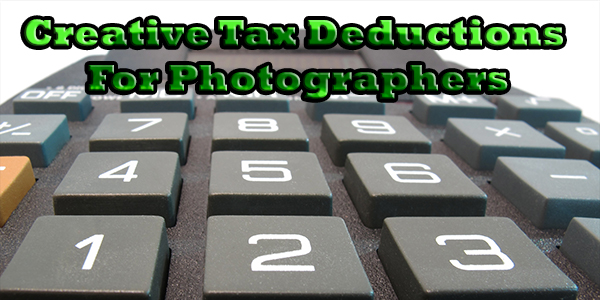
Creative Tax Deductions For Photographers
Simply put, things you currently pay for personally may be eligible for business tax deductions. One of the best things about earning income from photography is that you can also write off business related expenses as tax deductions from your business or off your own personal income if you have decided to go with a sole proprietorship business model.
Essentially, anything you spend money on which facilitates the reasonable generation of income (commonly referred to as “profit motive”) from your photography business / activities can likely be tax deducted in some manner. This of course is superseded by the fact that you have to earn reported revenue from this photography business / activity in order to write off against it. You cannot just buy a camera for fun and write if off if you are not reporting any legitimate income.
When I speak of “creative” tax deductions, I am not alluding to fraudulent actions. I am merely attempting to enlighten you on potential tax benefits that you may not be aware of or conceived of yourself. This is not an article on how to cheat the taxman.
*** Also, I am going to take a very open and collaborative approach to writing this particular article. I will list some of the creative tax deduction ideas that I have been made aware of and leave this article open to you, my readers, to provide additional “creative” ideas. Just comment with your ideas and if it makes practical sense I will not only update this article to include your idea(s), I will also credit your submission username at the end of this article… 🙂
Firstly, there are a few things that are more or less black and white in the world of taxation which you need understand and accept before we get to the creative tax deduction ideas.
- If you plan on claiming business expenses against your expenditures, you need to ultimately show that these were incurred with the clear intent of reasonable profit. Trying to expense $5,000 worth of business costs to justify earning $200 in a one-time revenue stream will not pass the any auditor’s sniff test.
- You can only claim or expense the usage percentage of your expenditures that are directly related to business only, not personal usage.
- You need to have generated revenue to write off business expenses off against.
- The key to all tax-deductible expenses is keeping excellent bookkeeping of all your business activities, including clear intentions, purpose and proof of transactions for business related activities. Make sure you keep all related receipts, contracts and business documentation for everything. For your own sanity, you really should keep a global log so come tax time, you are not left holding a messy handful of faded receipts. Your business log book should itemize in chronological order (hopefully with some kind of cross reference to the individual receipts) all your expenditures. For convenience I would recommend a smartphone application that you can easily whip out and use whenever you have a receipt. You can even opt to record a digital copy of the receipt with your smartphone as well as tag all the meta information necessary to capture your business intent or portion related to business use.
Potential Tax Deductions for Photographers
Photography Equipment = Business Expenses
- This is the most obvious tax deduction for photographers. Top professional photography gear is undoubtedly expensive. But often you get what you pay for. Having the most expensive camera and lens does not make you a great photographer, but you cannot deny that it certainly helps. Basically any photography gear you purchase for use to take photographs for your photography business / activities is eligible as a tax write off. Some items have to be written off based on a depreciated value over the lifetime of its use, but every bit helps when you are spending thousands and thousands of dollars.
- A few examples of photography equipment a photographer will want to write off:
- Primary and secondary camera bodies. Maybe an entire second set of cameras altogether if you decide to employ an assistant to shoot along side yourself
- A whole arsenal of professional lenses from macro, fish-eye, primes, wide angle, mid range, telephoto zooms and super zooms, to enable you to capture whatever type of photography your business demands. You could easily spend $20,000+ on a single lens if you really needed it.
- Memory cards for your camera. Top quality, large capacity and fast transfer rates will cost you hundreds of dollars. You will want to have many backup memory cards to, especially if you are shooting long sessions or in exotic locations.
- Lighting equipment such as flashes, strobes, umbrellas, diffusers, LED light panels, light meters, soft boxes, reflectors, shooting enclosures, stands and accessories.
- Professional tripods and monopods.
- Protective bags to carry and transport your photography equipment. This includes slings, backpacks, pelican briefcases, etc.
- Maintenance and repair fees to keep all your photography gear working optimally.
- Even the smaller stuff such as
- Batteries and chargers to power your camera, flashes and lighting equipment.
- Remote controls to control your camera such as cable releases and wireless triggers.
- Lens cleaners and sensor cleaners.
- Lens hoods, lens caps
- Special filters to protect your lenses or enhance the optical output (ie. UV filters, ND filters,
- Special light bulbs for different lighting effects.
Family Vacations = Travel Expenses
- Does this mean you can expense your entire family vacation? Well, the answer is not entirely, but maybe partially. If you are traveling on vacation and do some photography work while on location, then you can expense part of your travel expenses. For many photographers, photos of their own family and personal activities are fair game for their photography business because their family members are their models and the scenes they capture are naturally based on wherever they just happen to be taking them from. This makes it plausible that expenses incurred for your so called “vacation” are also business related. Caution here is to be meticulous about what percentage of your expenses are really business related versus personal and to keep a really good log of intent. Spending 2 minutes capturing a scenic silhouette photo of a palm tree while on a week long vacation in Hawaii does not constitute as a plausible 1 week travel expense tax write off. You get the picture…
- Some of the other vacation related expenses that may be eligible as partial or total business expenses:
- Registration fees and passes to enter events or shows.
- Excursion trip fees to get to remote and exotic locations.
- Tour guide fees.
- Taxi fees to get you to and from your photo site locations.
- Meals while working.
Family Vehicle = Vehicle Expenses
- If you are leasing or purchasing a vehicle and use it for business purposes and likely you would unless all your photography is done within walking distance, then you may be eligible to write off part of the loan.
- You will need to ensure that your “business needs” of this vehicle are evident in the usage transactions you record. (ie. you are a real estate photographer and need to be able to travel from designated site to site to fulfill your contractual obligations)
- Keep good records of exactly how much mileage is driven, including the specific origin and destination for all business related travel. This will help you figure out exactly what percentage (sum of mileage for business use / total sum of vehicle mileage) your vehicle has traveled is actually eligible as a business tax write off.
- Don’t forget about other vehicle related expenses if you are using it for business:
- parking expenses
- gasoline purchases
Family Home = Business Office / Studio
- Many photographers utilize part of their own home living space (ie. a sizeable den, bedroom or a basement suite) as a business office and/or photographic studio. If this is the case, then you can write off part of your home expenses as a business expense. The business usage percentage for your business office / studio is generally calculated by the square footage of this “space” compared to the total square footage of the home.
- Some home expenses that you can write off based on your business use:
- Utility bills (internet, phone, heat, electricity)
- Office / Studio furniture (desk, chairs, file storage cabinets, )
- Office / Studio equipment (computers, software, printers, photography props, external hard drives for backing up photographs, USB sticks to store and transfer photos)
- Office / Studio supplies (pens, paper, printer ink, photographic paper, special light bulbs, fabric for back drops, CDs and DVDs to burn photo discs)
Personal Smartphone / Tablets = Business Productivity Tools
- Everyone wants the latest mobile phone / tablet gadget with the larger screen, better resolution and faster processor, but wouldn’t it be nice if it was a business expense. And why not? Today, smartphones and tablets are functionally replacing conventional computers, laptops, telephone landlines, televisions and even (I hate to say it) cameras.
- If you want to write off your mobile devices (both the hardware and associated rate plan costs) as a business expense, consider using it for the following activities and then decide on how much, percentage wise, will be business versus personal use.
- As a mobile records keeping / tracking system for all your business expenses. What better thing than the device most people have with them on hand 24/7. The great thing about this is that you can easily keep photo records of receipts, ideas, proposals, etc with the many apps available at your fingertips. Note: the more useful apps or app features may cost a few dollars to unlock or download, but that is certainly a business productivity expense you can write off as well.
- Take pictures with the Clashot and sell them online.
- Manage your blog web site
- As a research tool to learn anything photography related that will increase your abilities to generate income from your business activities. I highly recommend reading articles on Priceless-Photos.com… 🙂
- phone including long distance
- Use it to market your photo portfolio to potential customers.
- Calling your customers to set up business appointments or receiving calls from potential customers. (track your additional long distance charges)
Insurance Premiums = Business Insurance
- Insurance is one of those things that is a cursed “dammed if I do, dammed if I don’t.” Yes, it is like paying to breathe free air, but as a professional photographer you may require this in order to run a sustainable business. There are different types of insurance you may wish to purchase related to your business:
- Product insurance to protect your photography equipment investments from theft or damage. If all your gear was stolen, would you be able to repurchase it out-of-pocket before your next scheduled session / contract? If not, you are putting your business’ reputation and credibility on the line.
- Business operating insurance to ensure you are not personally liable for lawsuits stemming from client dissatisfaction, copyright infringements, etc.
- I have even heard that if you are a professional photographer, personal life insurance premiums are something that you can claim as business related as long as the primary payout beneficiary is your business to take care of your business debts first. If you do not carry a business debt, then even better.
Website / Blog Site = Advertising Expense
- Nowadays no one takes your business serious unless you have a legitimate website. Not only does a well designed website allow clients to discover you without you having to reach out first, it also allows you to connect with your existing clients. There are so many uses for a website, below are a few ideas to consider (you can implement just one or all of them together depending on your appetite):
- Simple contact page. Consider this an online business card.
- Photo portfolio demo site. You can use this as a presentation tool to win client contracts.
- Marketing tool. This is to allow viewers to sample some of your best work as well as gathering information from potential clients such as their email addresses for newsletter subscriptions, promos, etc..
- Many photographers use their website as a host site, providing their clients a login to view captures from their photo session.
- Some photographers take the above step even further and set up a “shopping cart” system allowing their clients to pick which captures they would like to buy the original digital image for and/or physically print. Some photographers have their own mini print shop to deliver quality photos on canvas boxes or regular prints.
- Blog site. Some photographers enjoy writing about their experiences and sharing their knowledge. This is a great way to expose yourself to the world and network with other photographers… (hey, wasn’t there a blog site out there called Priceless-Photos.com)…
- As you can obviously see, the use of a website can be very much a business related expense. You can likely write off the following:
- Domain registration fees
- Web hosting fees
- Website development fees
- Paying a web designer / coder
- Paying for a custom logo design
- Purchasing a template to customize
- Online services to add to your website (ie. plug-ins, paid services to other website services, etc).
Workshops, Seminars, Conferences, Books, Magazines = Education Expenses
- A true photographers pursuit to perfection is never really actualized. There is always something that you can learn to improve your art, skills and abilities. Luckily, if you are using your skills to generate income, this can be considered education expenses for your business. There are so many venues that can be utilized to learn different photography skills. Many are free, but some of the best ones may require payment:
- Workshops – great hands on experience.
- Seminars – great tips from professionals who are in the same boat as yourself.
- Conferences – good general information and great networking opportunities.
- Books – very usable reference materials.
- Magazines – up to date info.
- Consultation – unique one on one learning.
Clothing = Advertising Expense
- This one sounds quirky, but I was told by some colleagues that they advertise with their own body. Basically, they would buy a custom t-shirt with their business logo printed on it (front and back) and walk around with it during their normal day activities. Depending on how catchy your logo or design is, you may get stopped and asked often what your t-shirt refers to.
- If you are selling these printed t-shirts for profit (again, depends on how catchy your design is), then this would be a material expense, but you will also have to report your profit margins from any sales as income.
Family and Friends = Paid Employees or Contract Labor
- If you are really doing well in your business and generating lots of income, first of all congrats and we would love to hear from you and your experiences at Priceless-Photos.com, you may want to consider how valuable your own time is as the Photographer and hire someone else to do some of the administrative and less income generating, but time consuming tasks. This is the logical way to optimize your business time in order to generate maximum income. When it comes to hiring someone to work in your business, who better to trust than an already trusted family member or close friend? Not only will there be less interviewing required, you can probably negotiate a good salary/rate.
- You can consider employing a family or close friend for any business related task, but some of the common ones are:
- Website administrator, editor, or content provider.
- Marketing manager to get you new contracts or spread the word about your business.
- Secondary photographer for large complex sessions where you cannot be everywhere at once to capture the best angle or shots.
- Photographer assistant to help with some of the extra hands work such as carrying equipment on site jobs, holding light reflectors to enable the best lighting during captures, etc.
- Pay accordingly of course for the actual work performed, otherwise you may be red flagged by the tax auditors. And of course, this means that your staff will have to claim these wages as income of their own.
Sponsoring Community Leagues / Events and Other Organizations = Advertising Expense
- Another great way to advertise for your business is to sponsor an event, dance group, sports team, community league or another organization. You get your name out there in front of patrons, parents and possibly news stations. Remember, you can always photograph these events (and be recognized as the event photographer) as well as most of these organized events generally have some kind of event posting, advertising or websites of their own that can benefit from professional photographs. Or you can even provide water bottles with printed labels of your business logo and contact info.
Accountant = Professional Services
- As much as I would like to advise you to save money and do your own taxes, sometimes you might save more (and sleep better at night) knowing that a professional accountant has combed through all your receipts and provided you with the best taxation alternatives. Again, some accountants charge by the hour, so if you have all your receipts and records organized before for your accountant, you will still save money in fees.
- If you do decide to do your own taxes, you can still purchase an official Income Tax application program to make your life much easier and write off this expense.
Attorney = Professional Services
- Ever hear of “copyrights”? If this is foreign to you then please do yourself a favor and find an attorney. Photography is generally not a very liable profession, but you can land yourself in some hot waters infringing on copyright laws. An attorney can help you set up your professional contracts and legal disclaimers to ensure you are protected from unexpected violations. Attorney fees are definitely business expenses.
Again, the purpose of this article is not to detail how you can deduct business expenses when you file your taxes, but to enlighten everyone to some of the creative means of running a business and making the most of potential tax break benefits. I hope you have found something useful in this article. If you have something you would like to add to this article and be credited for your contribution, please comment below with your ideas and I will review and update this article with worthy ideas… 🙂
Please consult a tax expert in your own tax jurisdiction before applying any of the above creative practices. The taxation rules and legislation are different all around the world and you should ensure that you are not in violation. Having an authorized accountant perform your taxes will mitigate this risk, and the costs for this is definitely a business expense you can write off too… 😉
The following are reader contributors to this article. Thank you for your creative tax deduction ideas for photographers:
- Comment with your ideas to have your name and and idea placed in this article!!!!


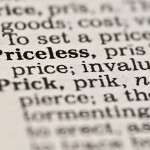
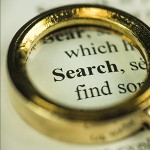
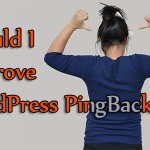
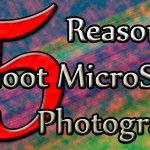
3 thoughts on “Creative Tax Deductions For Photographers”
Comments are closed.